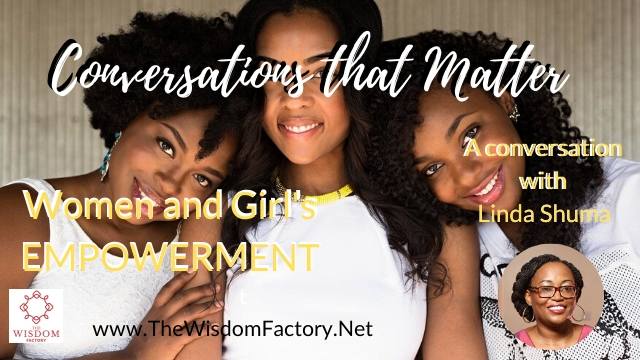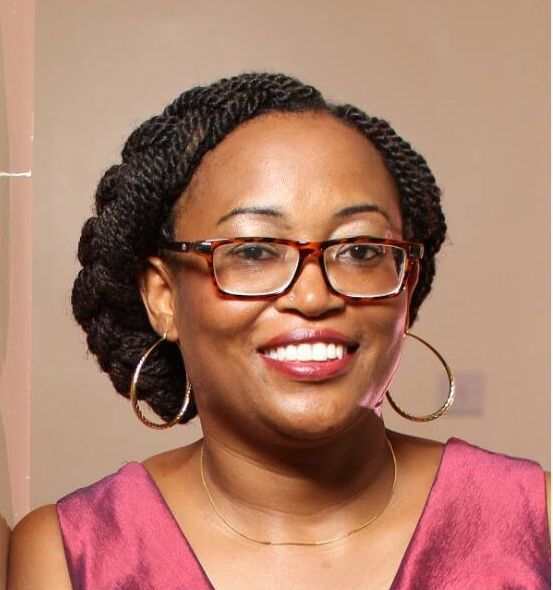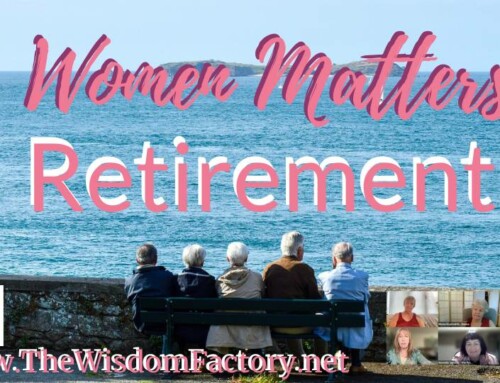
CONVERSATIONS THAT MATTER – THE AFRICAN DIALOGUES
Women and girls’ empowerment: A conversation with Linda Shuma
Linda describes the work she is doing in Kenya to help women to step up in order to create a better life in their country

Heidi writes
“Give a man money and he will bring half of it into a bar. Give a woman money and she will feed her children, herself and her husband.” Linda from Kenya said this in our conversation, but this seems to be something like an universal truth. Women feel responsible for fostering life in a much deeper way than men do. Men often don’t take over the responsibility for their own children, at least not in the same way as women do who naturally have a more direct relationship to the beings she gave birth to.
There are still countries in the world where boys go to school for many more years than girls, in a few countries girls are totally excluded from school. Studies have shown that a country starts to come out of misery as soon as girls get better education and take part considerably in the economy of the community or country. GIve a sewing machine and some material to a woman and she will create a small business naturally and earn enough to feed her family! Alain Volz, in a previous conversation, talked about that when he spoke about his projects in Ghana. Mayhem Rusaza mentioned similar approaches for his country Rwanda, Here Linda SHuma presents her work in Kenya where she has created structures for the empowerment of girls and women.
In the Western countries the same was true in the past. Women collaborated with men in farming and in handicrafts. When times got better and men became more reliable in doing their duties and bringing home enough money for the family, women had the privilege to stay home and concentrate on household and children which before had to be done in addition to the tiresome striving for money. In times of war women were called to work in the factories for replacing the men. Afterwards they were sent home again.
When women felt to be subdued under the power of men and disposable for their plans, the desire arose to be part of the decision making. The suffragettes fought for the right to vote, feminism fought for the right to have a profession and to be paid for their work equally to men in the same position. Now we have achieved this situation, more or less, in the Western world. Nonetheless, the responsibility to grow the children is still in the hands of women, mostly, and men still prefer to spend a big junk of their income to their own desires while women touch their own savings when that is needed for the family. I am aware that this sounds like stereotypes, but as far as I have experienced and seen in my life, this is still a “normal” tendency, albeit certainly not a cultural given any more.
In the so-called “developing countries” this is still very much the case. Special efforts are done by courageous individuals to change that. The best way for it is to start with changing the mindset of the young. When young girls realise that they are not confined to the traditional norms, but that their future has so much more possibilities than they were taught by their culture, the way opens not only for themselves, but for the whole culture to grow.
Linda, having had the encouragement by her parents to be whatever she wants to be, is now using her state of empowerment to give it over to other women and to girls. She teaches girls at school all the new thoughts and doesn’t exclude the few boys from listening who are interested in hearing what she has to say. She is building the change from the bottom up. The change happens in the families, in real life, and from there it will spread out into society: a promising approach!
Videopost for August 12th, 2020
About Linda Shuma
Linda Shuma describes herself as a mother, mentor, politician and artist.
Passionate as an agent of positive change in society mainly through coaching, mentoring and participation. Excellent communicator with a network that cuts across societal divides. She is involved in various community impacting projects and activities including being a member on Lions Club International through her home club of Lions Club of Mombasa – Bahari and being a Co-Founder of Women and Girls’ Empowerment (a Community Based Organization).
She holds a Bachelor of Science International Business Administration with a minor in Hotel and Restaurant Management from United States International University- Africa (USIU-A)
Her great concern for the community propelled her into politics and she did have an opportunity to vie for political office in the Kenyan general elections of 2017 as a Deputy Governor candidate.
She is an active member of her church community and serves in different capacities because for her, faith anchors her being.
Linda is passionate about co-creating the future of Africa and is an active participant in Ubuntu.Lab an initiative under the Presencing Institute. This co-creation is only possible by embracing the UBUNTU philosophy, ‘I am because you are’.
She loves to bake, cook, read and socialize with friends and family and has in the recent past found a new way to express herself through different forms of art and crafts.

Organization:
Women and Girls Empowerment
On Facebook:
@WAGEkenya





Leave A Comment